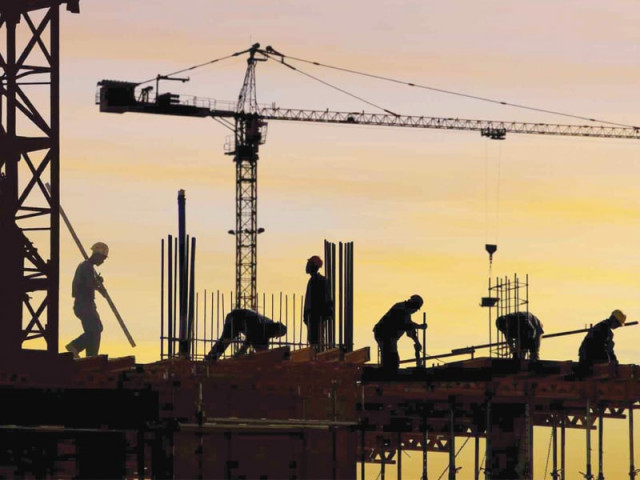Revamping the tax regime: 16% sales tax on building materials likely
FBR will collect Rs20b by withdrawing the tax adjustment facility.

Previously, construction supplies were entitled to input sales tax adjustment. PHOTO: FILE
The government is considering charging 16% sales tax on all types of building materials by withdrawing the input tax adjustment mechanism for supplies of these materials, a move that will lead to collection of roughly Rs20 billion per year as well as address a major lacuna in the tax policy.
Tax officials have been providing input sales tax adjustment on supplies of cement, paints, iron, fixtures and other materials, which is contrary to taxation principles, according to officials of the Federal Board of Revenue (FBR).
The officials, who prepared the case for withdrawal of the facility, argued that seeking tax adjustment was legal, but the FBR’s decision allowing tax adjustment a few years ago was “illegal”, which requires an investigation to determine whether underhand deals were struck to give favour to some people.
According to the Sales Tax Act, the input tax adjustment can only be allowed where the output is taxed.
According to the officials, the case for scrapping the tax adjustment facility has been sent to FBR Chairman Ansar Javed. Javed, who is currently in the United States to hold talks with the International Monetary Fund, is expected to forward the file on his return to Adviser to Prime Minister on Finance Shahid Amjad Chaudhry for a final nod.
Tax authorities are expected to generate Rs20 billion per annum on this account, which comes under the administrative measure and does not require a change in law through an Act of parliament or an ordinance.
The Express Tribune tried to seek comments of the Association of Builders and Developers of Pakistan (ABAD), a body working to protect the interests of builders and contractors for the last five decades. Until the filing of the story, ABAD Secretary General Syed Javed Jafri did not respond to an email.
According to a study carried out by the FBR some months ago, effective sales tax rate in the country is just 3.6% against the standard rate of 16% because of various tax exemptions including input tax adjustments granted under political influences.
Former FBR chairman Ali Arshad Hakeem was of the view that there was no need to impose more taxes as revenue collection could be increased significantly by removing distortions in the tax system.
Recently, the FBR changed the mode of collecting sales tax on cellphones from the outdated activation stage to the import stage besides doubling the rates, which will fetch over Rs5 billion.
Similarly, it has placed an upper cap at 1% of the total value of a product for giving sales tax refund on packaging materials after noticing that refunds have been claimed up to 20% of the value, causing losses of millions of rupees.
However, it seems that the FBR is again moving away from its policy of addressing tax lacunae as its chairman has taken a list of new tax measures, expected to generate over Rs70 billion, to Washington that will be discussed with the IMF. Some of them may be levied before the end of June to bridge the gap between the tax target and actual collection.
For the current fiscal year, the government has set a Rs2.381 trillion tax target, but latest estimates suggest that revenues will not exceed Rs2.058 trillion, a gap of Rs323 billion. “Efforts are being made to jack up revenues to at least Rs2.115 trillion by taking some additional measures,” an official said.
Published in The Express Tribune, April 20th, 2013.
Like Business on Facebook to stay informed and join in the conversation.



















COMMENTS
Comments are moderated and generally will be posted if they are on-topic and not abusive.
For more information, please see our Comments FAQ